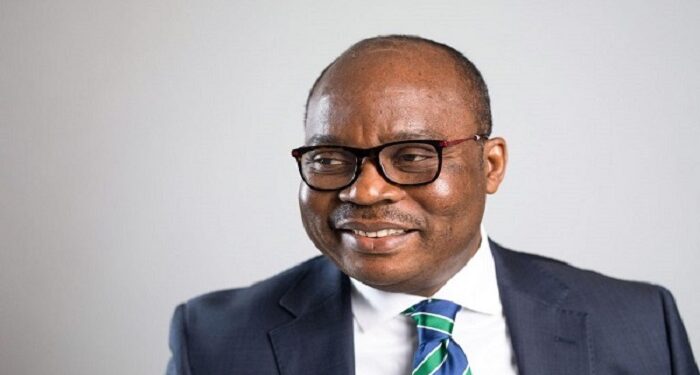The Governor of the Bank of Ghana, Dr. Ernest Addison, has expressed his outfit’s expectation for inflation to ease further, saying, the Central Bank is on course to bring down inflation drastically.
According to him, this is underpinned by the continued implementation of sound policies till inflation expectations are firmly anchored towards its single-digit objective.
“In this regard, the Bank of Ghana will continue to monitor both domestic and external developments and respond appropriately to ensure that the downward inflation trajectory observed in recent months is sustained without undermining growth. The 2023 experience of a strong reduction in inflation and stronger growth is instructive”, the Governor disclosed at a meeting involving the Country Representative of the International Monetary Fund and the Minister of Finance, Ken Ofori-Atta.
“During our last interaction, I had stressed on steadfast commitment from all sides and the Bank of Ghana (BoG) will work on delivering its mandate on price and financial stability. The recent trends in inflation that the economy has witnessed in the course of 2023 suggest that we are on course”, he added.
A year ago, inflation was hovering around 54% (January 2023).
Through strong and innovative policies, tight monetary conditions and relative exchange rate stability, the Governor pointed out that inflation has been more than halved by the end of 2023 and is currently reported at 23.0%.
The Governor continued that several factors have supported the disinflation process and these include; monetary policy stance throughout 2023, stable crude oil prices which led to stable fuel prices with favourable impact on transportation costs, a relatively stable exchange rate environment, stronger FX reserve accumulation due to the gold for reserve programme, and favourable climatic conditions on the food supply chain process.
IMF programme and beyond
He added that with a successful conclusion of the first review of the IMF Programme, “we need to begin to think of the second review of the programme and beyond”.
While tentative indications point to sound implementation of policies through to December 2023, he stressed that vigilance and commitment will be needed in 2024 to undertake all the structural reforms envisaged under the programme.
“Implementation of these reforms to ensure the economy functions well will be critical”, he concluded.
Latest Stories
-
Tidy up your act and provide clarity on 24-hour economy – Oppong Nkrumah to government
6 minutes -
Speculating against the cedi will be irresponsible – Oppong Nkrumah
15 minutes -
Reduced public spending the reason for cedi’s recent strength – APL argues
47 minutes -
The music industry has not been fair to me — Keeny Ice
1 hour -
Johnnie Walker launches new whisky variant in Ghana
1 hour -
Debt restructuring: We are making progress with all remaining creditors – Government
1 hour -
2025 Unity Cup: I would have loved to play Jamaica in final – Thomas-Asante
1 hour -
2025 Unity Cup: Ghana lacked aggression against ‘matured’ Nigerian team- Otto Addo
1 hour -
Finance Minister appointed Returning Officer for AfDB presidential elections
2 hours -
What does Your Name represent? The power behind your identity
2 hours -
Fatawu Issahaku to be fit for Leicester City pre-season
2 hours -
Ghana cedi’s recent gains may be temporary without deeper reforms – APL
2 hours -
NPP must take responsibility and compensate JoyNews’ Latif Iddrisu for assault – Affail Monney
2 hours -
Will DJ Lord OTB keep his crown as Ghana’s Best DJ in 2025?
2 hours -
Youngster Mohammed Sofo scores in third straight game as NY Red Bulls beat Charlotte FC
2 hours

